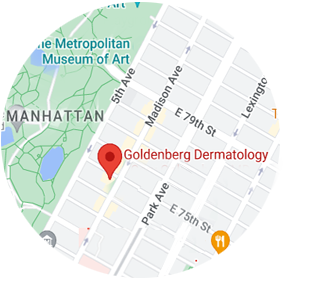Is Seasonal Hair Loss Real?
Seasonal Hair Loss – is Fall Hair Shedding Real?
It is widely known that across the animal kingdom, various creatures experience the seasonal hair loss known as molting. But for humans, seasonal hair loss is also a very real issue. In the northern hemisphere, seasonal hair loss usually peaks in the months of August and September, meaning many Manhattan residents are currently suffering from the condition’s aftermath.
For a great many years, the medical community largely dismissed the idea of seasonal hair loss existing amongst humans. It was not until 1969, when the results of a landmark clinical study proved that hair loss can be a seasonal occurrence in humans, that the claim was acknowledged by medical professionals.
In recent years there have been many important clinical studies which support seasonal shedding being a real phenomenon in both men and women.
What Causes Seasonal Hair Loss?
In animals, the factors that contribute to molting are believed to be both environmental and biological. Animal hair loss can occur as a result of changes in air temperature, as well as the animal’s exposure the sunlight.
Hormonal changes are also believed to factor into hair growth and hair loss. In adult males, for example, beard growth has been demonstrated statistically to peak during the summer months, a period during which plasma testosterone levels have been proven to be on the rise. Since these levels are then at their lowest during the winter months, it supports the idea that hair loss can be seasonal.
Clinical Studies on Seasonal Hair Loss
-Ebling Study on Seasonal Hair Loss
In 1991, a clinical hair loss study observed the hair growth patterns of 14 healthy males. Hair samples were collected from the subjects every 28 days, each contributing hair from five different areas of the scalp.
Participants in the hair loss study reported spending significantly less time outdoors during the winter months than during the summer (with an average of 11 hours per week in January versus an average of 30 in June). The study went on to show that maximum hair loss occurred during the months of August and September.
-L’Oréal Courtois Study on Seasonal Hair Loss
In 1996, France’s L’Oréal Laboratories performed what is known as the “Courtois Study,” which observed the hair loss experienced by 10 subjects over a period of 8 to 14 years. 6 of the 10 participants in the study experienced other forms of hair loss, while the remaining four did not.
9 out of the 10 surveyed individuals demonstrated a link between daylight hours and percentage of hairs in the non-growth or resting stage (“telogen stage”). And, similar to the results of the Ebling Study, the Courtois Study also showed maximum hair loss occur between the months of August, September, and October.
What You Can Do About Seasonal Hair Loss
For people with a full, thick head of hair, losing several strands to season hair loss is not a big deal. But for men and women already suffering from Androgenic Alopecia (male pattern baldness), telogen effluvium, or another chronic or progressive form of hair loss, a seasonal increase in hair loss can be devastating.
The good news is that both PRP and stem cell hair restoration – available at Goldenberg Dermatology in Manhattan – are completely natural methods of stimulating hair growth. Both Platelet Rich Plasma (PRP) and Stem Cells, when injected into the scalp, can stimulate the dormant hair follicles that are in the telegenic phase to start producing hair again.
Hair Loss Treatment – Manhattan
Hair loss – seasonal or otherwise – can deal a devastating blow to one’s self confidence. But fortunately, patients in the Manhattan area now have more solutions than ever to treat hair loss. Board-certified Manhattan dermatologist Dr. Gary Goldenberg will work closely with anyone who seeks out his care to identify a hair loss treatment plan that best suits their type of hair loss. Contact our practice today for a consultation, and to see how we can help make frustrating and embarrassing hair loss a thing of the past.











